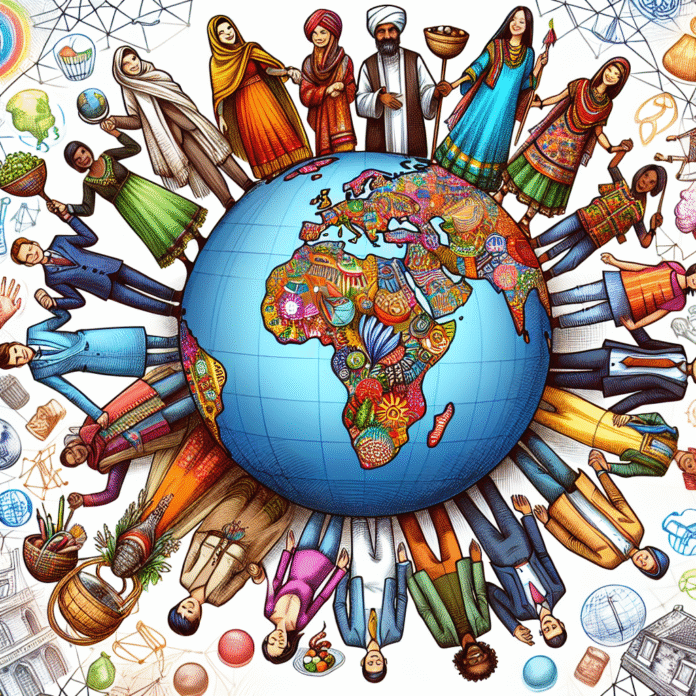In an age marked by unprecedented connectivity, the world has become a tapestry of diverse cultures, beliefs, and practices. The integration of communication technologies and globalization has dramatically transformed our interactions and relationships, making it essential to understand and appreciate cultural diversity. This article explores the significance of cultural diversity in an interconnected world and highlights ways to foster a deeper understanding among global citizens.
The Importance of Cultural Diversity
1. Enrichment of Society
Cultural diversity enriches societies by introducing a plethora of perspectives, traditions, and experiences. This variety not only enhances creativity and innovation but also promotes social cohesion by fostering mutual respect and understanding. In multicultural societies, different cultural backgrounds contribute to a vibrant community fabric, making it appealing and dynamic.
2. Economic Benefits
Culturally diverse workplaces often witness higher levels of creativity and problem-solving capabilities. Diverse teams bring together a wide range of ideas and approaches to challenges, ultimately leading to better business outcomes. Furthermore, understanding various cultural markets enables businesses to tailor their products and services, expanding their global reach.
3. Social Resilience
Cultural diversity can enhance resilience in the face of social challenges. Communities rich in diversity often demonstrate greater adaptability and creativity in tackling problems. By learning from various cultural perspectives, societies can develop more comprehensive solutions to issues like poverty, inequality, and climate change.
Challenges of Cultural Diversity
While cultural diversity presents numerous benefits, it also poses challenges that require addressing:
1. Cultural Misunderstandings
Misinterpretations or lack of understanding about other cultures can lead to conflict, discrimination, and xenophobia. Stereotypes, biases, and prejudice often stem from ignorance, underscoring the need for education and open-minded discourse.
2. Globalization and Cultural Homogenization
The rise of globalization brings about a risk of cultural homogenization, where dominant cultures overshadow local customs and traditions. This can erode unique cultural identities and lead to the loss of traditional knowledge and practices.
3. Integration vs. Assimilation
As countries become melting pots for various cultures, the balance between integrating diverse communities and maintaining cultural identities becomes crucial. Assimilation can sometimes demand conformity at the expense of individual heritage, which can stifle cultural richness.
Fostering Understanding and Appreciation
1. Education and Awareness
Educational institutions play a pivotal role in fostering understanding of cultural diversity. Introducing curricula that celebrate different cultures, histories, and languages can cultivate an appreciation for diversity from an early age.
2. Cross-Cultural Dialogue
Facilitating conversations between different cultural groups encourages empathy and compassion. Platforms that promote intercultural dialogue can help dispel stereotypes and build bridges among communities.
3. Cultural Exchange Programs
Encouraging participation in cultural exchange programs allows individuals to experience different ways of life firsthand. These programs can provide enriching experiences, help break down barriers, and promote a greater understanding of global interconnectedness.
4. Media Representation
Media plays a significant role in shaping perceptions of cultural diversity. Responsible representation of different cultures in film, literature, and journalism can challenge stereotypes and promote a more nuanced understanding of global issues.
Conclusion
In a world that is increasingly interconnected, understanding cultural diversity is not merely an option but a necessity. Embracing and celebrating this diversity can lead to enriched societies, innovative economies, and resilient communities. By fostering dialogue, promoting education, and encouraging cultural exchange, we can cultivate a global society that thrives on difference rather than division. As global citizens, our ability to understand and appreciate cultural diversity will shape the future of our interconnected world, leading to greater harmony and collaboration among all peoples.






